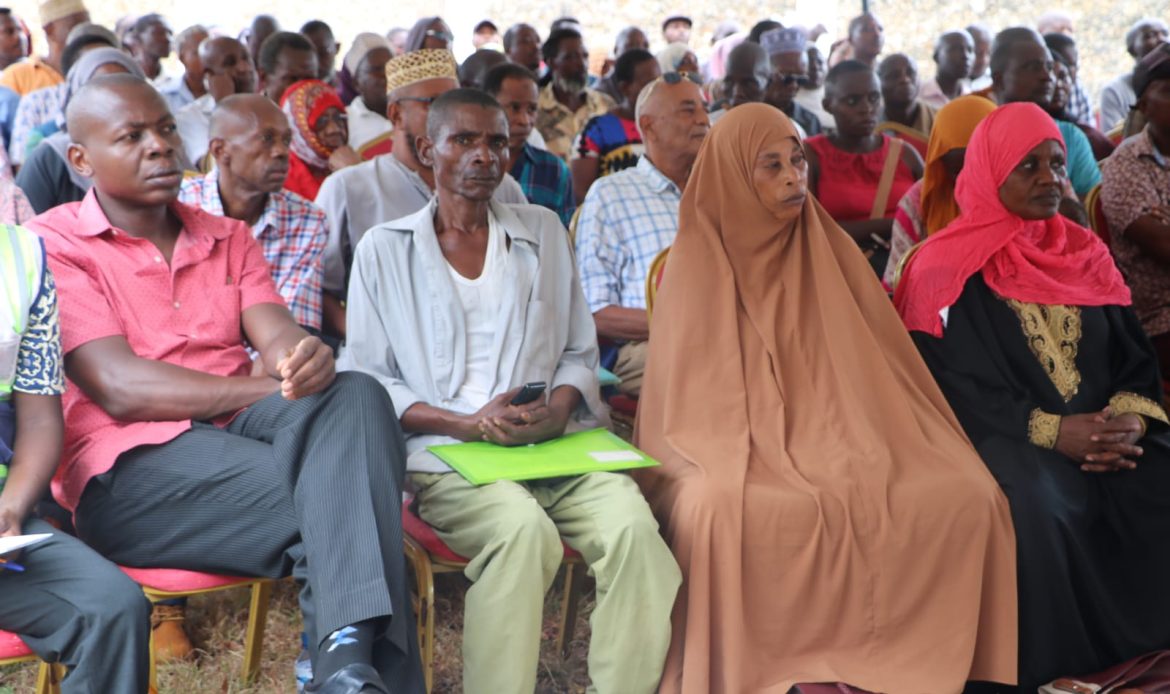NLC begins hearings on historical land injustice cases in Mombasa

Many cases centred on issues such as tenancy-at-will, absentee landlords and squatters.
Residents of Mombasa, whose historical land injustice cases were accepted for hearings, gathered at the Bandari Maritime Academy on Monday, seeing the National Land Commission (NLC) as their last chance to regain land ownership rights they felt were slipping away.
Monday's hearings at the Coastal City mark the beginning of the five-day exercise.
More To Read
- EACC reclaims Sh21 million public land in Mombasa after 17-year legal battle
- Indigenous women sound alarm over growing threats from conflict, inequality
- Senate Bill proposes two-year deadline for land court cases
- High Court nullifies law limiting NLC’s timeline on historical land cases
- National Land Commission directs State to conclude Ogiek resettlement
- Residents to receive Sh500 million compensation for Isiolo-Garbatulla-Modogashe road project
Many cases centred on issues such as tenancy-at-will, absentee landlords and squatters.
Residents of Majengo ya Simba in Sparki, represented by Haji Mwinyi, linked their claims to historical land injustices back to the colonial era.
“Individuals holding title deeds are foreigners and not locals,” he said, emphasising that forceful occupation occurred due to colonisation.
The residents, consisting of 33 households, lamented the escalating ground rates, drawing parallels to the oppressive taxes imposed on Africans during colonial rule.
Representatives of house owners in Kisauni and Nyali, led by Mohamed Omar and Nagib Shamsan, urged for a reconsideration of the term 'squatters', arguing that its misuse has unjustly deprived legitimate homeowners of their land rights.
Additional cases presented to the panel included those from Ngome Village, residents of Tononoka (Kaloleni), Kiziwi Self Help Group, Mbugoni residents welfare group, and several others.
Waqf deeds
The problem of waqf deeds emerged as a significant obstacle to residents' property ownership.
Waqf (Arabic for endowment) is a special kind of philanthropic deed in perpetuity. It involves donating a fixed asset which can produce a financial return or provide a benefit. The revenue or benefit generated then serves specific categories of beneficiaries.
A Waqf deed entails donating a building, plot of land, or other assets for Muslim religious or charitable purposes, with no intention of reclaiming them.
Shamsan Abdi, a former Waqf Commission of Kenya Commissioner, highlighted that certain deceitful individuals exploit religion through waqf, depriving deserving Kenyans of land ownership opportunities.
He explained that rather than collecting land rates or any form of payment, certain individuals posing as administrators of the Waqf Commission have been cheating unaware homeowners out of significant sums of money under the pretext of ground rent and land rates.
He noted that only 110 Waqf properties in Mombasa are officially registered under the Waqf Commission in Kenya, despite there being 880 properties in existence on the ground.
Residents highlighted several concerns, including frequent threats from landowners, failure of landowners to pay land rates despite being obligated to do so, limitations on renovating or developing their properties and increasing security risks.
Meanwhile, the Mombasa County Government, represented by the Director of Land Administration Rose Munupe, advocated for the regularisation of all land parcels associated with tenancy at will.
The NLC team, headed by Commissioner Prof James Tuitoek, reassured the public of an impartial and fair consideration of all cases presented to the panel.
Top Stories Today














































